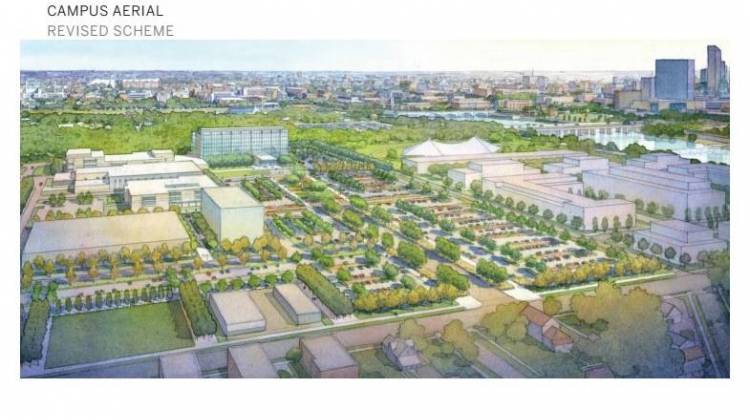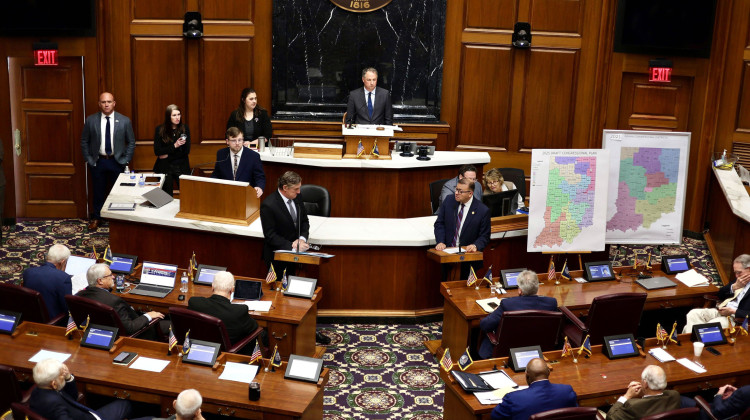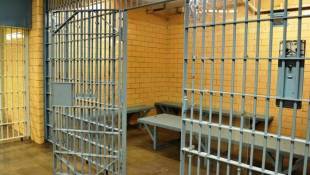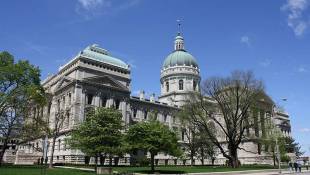
A rendering of the consolidated criminal justice center that was never able to win approval from city-county councilors.
WMB Heartland Justice PartnersINDIANAPOLIS -- This city is not much closer to having a new jail, but it spent a lot of money making that decision.
After more than a year of work, the city-county council cited cost concerns when it declined to approve construction of a consolidated criminal justice center, though not before it racked of millions of dollars in bills to lobbyists, public relations firms and others.
In the fall of 2013, Indianapolis city officials proposed building new jail, court and sheriff facilities onto a single site in an effort to modernize and streamline criminal justice in Marion County. Half of the old GM stamping plant located just west of the White River from downtown was picked as the site.
Concerns over the cost of the nearly $2 billion endeavor and politics derailed the project. Last week the city-county council refrained from voting on the proposal before several legal and financial deals expired.
(Related story: With a new jail unlikely, the old one will have to do)
The city still racked up large tabs with a handful of developers, lobbyists, law firms and consultants. WFYI was provided contract details from Mayor Greg Ballard’s office and the finance officer for the city-county council.
The two tallies are estimates at this point and vary slightly, but they show more than $15 million was spent on a project that ultimately failed to win approval. The city hired at least six different firms. Fees include $750,000 for each of the three development firms that bid on the project. Architecture firm HOK is slated to collect $4.5 million from the city.
So far, $5.1 million has been paid out, according to council CFO Bart Brown, with another $8 million still due. Some of the bills are being paid by the Metropolitan Development Corporation with the rest coming out of the Near Westside neighborhood’s Tax Increment Financing, or TIF fund.
It’s now on the city-county council to come up with the money, claims the mayor's administration.
"Those are funds that we shouldn’t of have to pay, those are funds that should have been wrapped up in the deal, those are funds that were included in the $6 million a year [the project] would save," Adam Collins, a deputy mayor, said. "And now the council’s going to have to help find a solution for that."
Council leadership refutes the mayor’s assertion that they’re to blame for the ballooning consulting costs.
"I am not going to go along with the council taking responsible for a horrible deal and a horrible process," counters Democratic council president Maggie Lewis. "They put that plan out there, they need to own it, not the council."
Mayor Ballard and council leadership signed a memorandum of understanding in December 2013, agreeing to move forward on studying and bidding out a new justice center:
The parties recognize that the engagement of, payment of fees to, and reliance upon expert consultants is a necessary and prudent step even if it is later ultimately determined, or any reason, that the Justice Facility Improvement Project is not to be designed, financed, or constructed ...
The memorandum pegs the industry standard for such fees at two percent of construction costs. The justice center presented to the council would have cost just shy of $400 million, putting those fees at about $8 million. The bills ended up being nearly twice that.
Consulting and other costs should have been capped at $8 million, per the memorandum, contends Lewis.
"The council was held at arm’s length and only given tiny little dollops of information as we went along," said council vice president John Barth, a Democrat.
Paying losing bidders and hiring lobbyists doesn’t make sense, Barth said.
"I think we need to have a serious conversation with the mayor, why he made such deals that uniformly bad for the city of Indianapolis," he said. "To go down a road that is really the opposite of best practices in public procurement I don’t know why he did that and chose to keep the council at bay."
Giving up the property
Indianapolis also owes real estate firm REI $375,000. The firm planned to buy the land on behalf of the city.
REI plans to let the purchase contract lapse at the end of the month, according to chief executive Mike Wells. The company will continue to look for ways to develop the portion closer to the White River, according to Wells, but 60 acres set aside for the justice center on the western half of the site will go back on the market July 1.
The property is owned by RACER Trust, a company created to manage and sell former General Motors properties, which is confident the site will attract another offer quickly.
"The fact that Indianapolis is a place where the business climate is very strong and given the general real estate market, we fully expect to attract a good proposal for the west parcel," said RACER’s redevelopment manager Bruce Rasher.
RACER does not disclose asking prices for its properties. When the factory was still humming, the 102 acre site was valued at more than $9 million.
Some councilors and Marion County Sheriff John Layton have expressed interest in starting over on a new jail proposal with a new mayor in January. Depending how far back to the beginning they want to go -- there's been hope expressed some of the work can be salvaged -- will determine how much another procurement process will cost.
Clarification: The original version of this story identified RACER Trust as a subsidiary of General Motors. It's actually a separate, standalone company with no direct relationship with GM.
 DONATE
DONATE






 View More Articles
View More Articles




 Support WFYI. We can't do it without you.
Support WFYI. We can't do it without you.